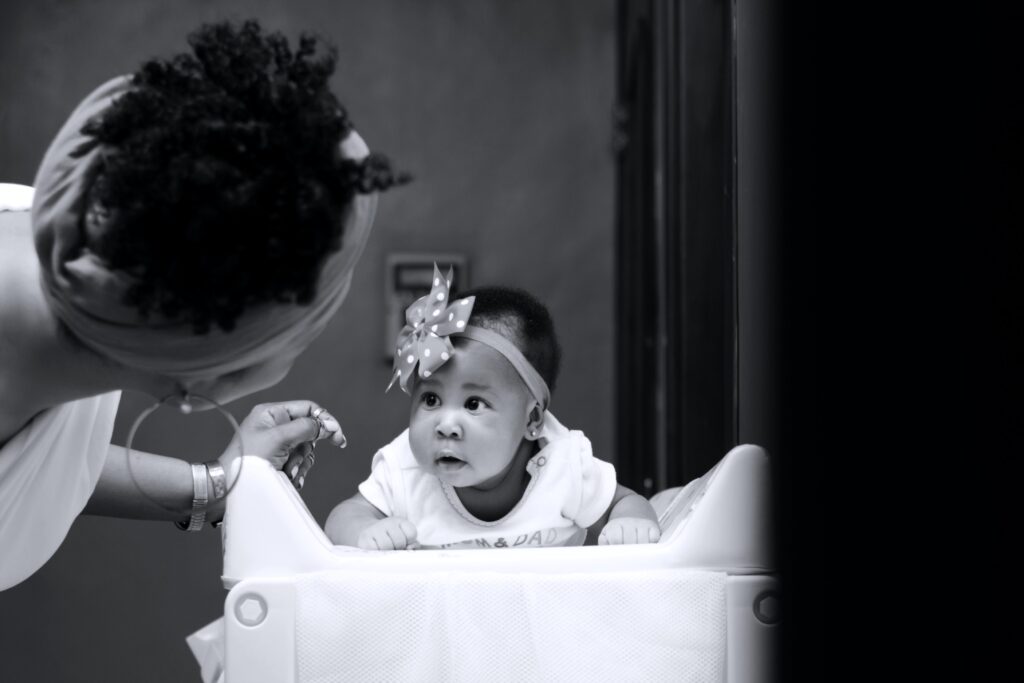Published on November 25, 2022.
By: Sydnee Walcott

Social media usage is at an all-time high and continues to become more engaging in everyday life. People use different social media apps to promote themselves and their talents, allowing them to attract fame, brand deals, and other financial opportunities on the internet. The “baby mama” and “baby daddy” culture has increased in the attention it receives. It has become glamourized over social media.
Nowadays, it is common to hear celebrities or influencers being referred to as a baby mama or a baby daddy, but it is also common for people to know someone in their life that they can refer to as a baby mama or baby daddy.
These terms are used to describe a couple who are unwed, having a child together. One would describe this person as the “mother of my children,” “father of my children,” or “parent of my children.” The term “baby mama,” which is commonly used in the Black community along with the term “baby daddy,” originated from Jamaican Creole, commonly known as Jamaican patois/patwah, in the 1960s.
The term “baby-mother” would be pronounced “bebi-mada.” The term “baby daddy,” which is not as popular, would be used to describe men who were estranged from the mother(s) of their illegitimate child(ren).
Unfortunately, baby mamas and baby daddies are prevalent in the Black community, and the pain it has caused within the community has played into the continuation of common anti-Black stereotypes, such as the “absent father” and the “welfare queen.”
Factors that play into the “absent father” stereotype include men who are absent in their child’s life due to avoiding childcare responsibilities. Additionally, the high population of Black men who are incarcerated in the judicial system and the illegitimate killings of Black men by police officers leaves Black women to raise children without a father figure.
The “welfare queen” stereotype generalizes Black women as lazy and promiscuous,wanting to have as many children as possible to receive government benefits.
There are a variety of factors that lead to these generalizations. This includes hookup culture and the lack of protection used during sex, which is common within the Black community. As hookup culture continues to become normalized, less people seek a real relationship that can lead to marriage with planned pregnancies to create more single-family homes with single Black mothers.
There are women who are aiming to become a baby mama to someone of high status, usually a Black male celebrity, through manipulation by trapping them into having a child with them so they could claim benefits and attain the same high end lifestyle as the father.

Originally, being labelled as a baby mama or baby daddy was looked down upon due to the negative stigmas surrounding non-nuclear family dynamics. The nuclear family is the traditional family, a cis-gendered man and woman who are married and have one to three children.
To conceive a child out of wedlock adds to the stigma Black women face on a daily basis. As a way of fighting against this stigma, the over glamourization of baby mama culture has become an enviable lifestyle for people, especially when enacted by their favourite celebrities and influencers.
According to a study conducted by the Faculty of Social Science at the University of Ibadan in Nigeria, the glamorization of being labelled as a baby mama or a baby daddy influences teenagers to have children outside of a relationship to achieve fame on social media.
This phenomenon has led young adults to abandon marriage and relationships altogether.
Drama that unfolded between rapper G Herbo and his ex-girlfriend, Ari Fletcher have brought this culture to mainstream celebrity and gossip blogs. Nick Cannon has become a recognized face in the baby mama culture, becoming a father to eight children with five different women. Social media platforms like The Shade Room help glamourize this culture by continuously reporting baby mama/daddy situations involving the drama that has unfolded between DaBaby and DaniLeigh,Nick Cannon breaking his celibacy vows and his plans to have more children, and the drama that had unfolded between both of Lil Baby’s baby mamas.
In another situation, a woman got into a disagreement with the father of one of her four children after he purchased only one meal from McDonald’s for his own child. She complains that the other three children would be jealous and that it was his responsibility to feed all four children, regardless of their biological father, a point which he vehemently denied.
This story is a primary example of the complications that follow complex family dynamics and the toxicity that this culture encourages. As people watch this argument unfold from their phones, they take sides on the situation, and may even perpetuate what they learn from these incidents in their own lives.
According to the Statista Research Department, in 2006, there were 1.47 million single families living in Canada. The number has risen to 1.83 million single-parent families in 2021. What people fail to realize is that this culture can have a negative impact on children because they may grow up to think it is okay to have a baby mama or a baby daddy without fully grasping the toxicity of it. Unfortunately, many negative effects come with parents being separated.
Even though having children after marriage does not guarantee a perfect family and life, the baby mama and the baby daddy culture has become an unnecessarily toxic dynamic and is a lose-lose situation for everyone impacted by this.
Steps to put an end to this culture include those understanding the repercussions of taking part in hookup culture and the consequences of having sex. In addition, the importance of using protection in causal relationships should be encouraged, not only to prevent unwanted pregnancies, but for both parties’ physical health.
It is unfortunate that the baby mama and baby daddy culture has been so ingrained into Black culture, with social media continuously making it worse through glamorization of this toxicity. The goal should be to promote positive and healthy relationships and family dynamics instead of perpetuating toxicity and damaging narratives.
Sydnee Walcott is a Copy / Contributing Editor for Black Voice. She is also a writer who likes to capture the essence when writing articles on a variety of topics.

